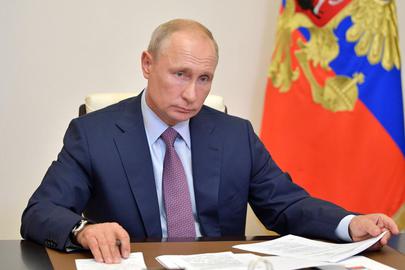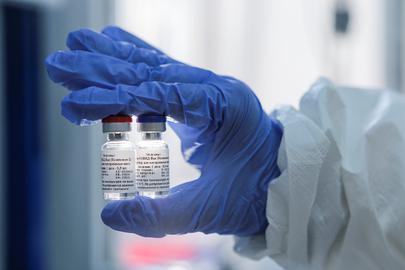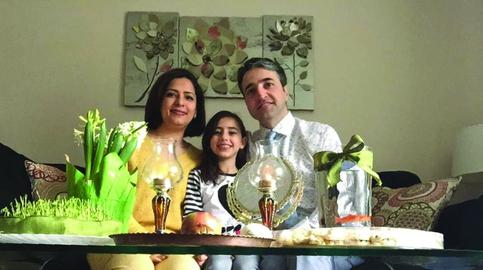Sarah Hurst is a freelance journalist based in the UK who has been covering Russia since her first visit to the Soviet Union in 1990, when she interviewed Soviet Interior Minister Vadim Bakatin. She has lived in Russia, Belarus, Azerbaijan, China and Alaska. Her live coverage of Russia and the region can be seen on Twitter at @XSovietNews.
Earlier this week, Russian President Vladimir Putin announced that Russia had registered the world’s first coronavirus vaccine and that one of his daughters had already had it, experiencing just a temporary rise in temperature as a result. Russia already plans to give more people the vaccine soon, starting with medical workers, although authorities insist that this will be voluntary. Scientists around the world reacted to the news with dismay because the vaccine has not been through clinical trials that demonstrate its safety, or whether it can actually prevent infection.
What is the vaccine?
Russia did not inspire confidence in the vaccine by naming it the Sputnik-V, which reminds people of Sputnik the state-funded news outlet, a font of propaganda in English and other languages. It is supposed to be named after the Soviet space programme, and the reference to the space race is very deliberate. The Soviet Union put the first man in space, Yuri Gagarin, and Russia’s space agency Roskosmos has recently been promising both regular moon launches and a reusable vehicle – perhaps even a revival of the disastrous Buran, itself a copy of the US Space Shuttle – in response to Elon Musk’s launch of the SpaceX rocket. Putin naturally does not want us to remember the Soviet-sponsored first dog in space, Laika, who died.
Official information about the Russian vaccine can be found on the Sputnik-V website. The vaccine is being developed at the Gamaleya Research Institute of Epidemiology and Microbiology in Moscow. It uses adapted strains of the adenovirus, a virus that usually causes the common cold, to trigger an immune response.
How has it been tested?
Russian media have reported that the vaccine was tested on military personnel, which raises questions about whether they voluntarily consented. Only 76 people have officially been test subjects for the vaccine, and this solely to find out whether it caused any initial harmful reactions. On July 20 Bloomberg reported that scores of Russia’s business and political elite had been given early access to the vaccine.
It is possible that Putin’s daughter was one of these, and that the elite group simply wanted to be the first people to be protected from the virus. Or, as is not entirely beyond the realm of possibility, Putin was lying. It is highly unlikely that those testing the safety of the vaccine would have selected Putin’s daughter to be in the first, highest-risk group. Putin did not say to which of his two adult daughters he was referring, and it is very rare for him to talk about them at all.
Elsewhere in the world at least 24 other potential coronavirus vaccines are undergoing trials involving thousands of volunteer participants who must fully informed in order to consent, go through health screenings to ensure that they do not have Covid-19 antibodies, are not pregnant and do not have pre-existing conditions, and be regularly monitored and tested for the virus. The process should take at least a year to 18 months and include control groups who did not get the vaccination. Only when enough participants have reported testing positive can a difference between those who were vaccinated and those who were not be established. There could also be side effects that do not emerge in the initial short-term trials.
Why is Russia doing this?
Russia wants to position itself as the world leader in science while the United States is flailing in its policies under Trump. The Kremlin treats the “vaccine race” like the space race. It is a matter of prestige – compare with the mass doping that Russia organised in its determination to win the most medals at the Sochi Olympics – and also money. Russia wants to sell the vaccine around the world, including to large countries such as India and Brazil. Philippine President Rodrigo Duterte has volunteered to be injected with the vaccine and to host trials of it in his country. He is not renowned for his concern for health and safety.
What do the scientists say?
Doctors and scientists have been overwhelmingly negative about Putin’s announcement, fearing that it will fuel vaccine scepticism and could cause harm to those who trust the untested vaccine. Dr. Anastasia Vasilieva, the head of Russia’s Alliance of Doctors, who has repeatedly accused the Kremlin of downplaying coronavirus numbers, tweeted: “Why so much publicity around our supervaccine? 1. So that everyone suddenly loves Putin, who ‘cares’ so much about his people. 2. To distract from Belarus, it’s bad for our people to look at that, hey, look, we’ve launched a vaccine, everything here is good.” Putin is undoubtedly concerned that Russians could be inspired to protest against him if Belarusians succeed in ousting Alexander Lukashenko. Protesters in Khabarovsk in the Russian far east have been seen waving Belarusian flags.
Lawyer Svetlana Zavidova, the head of the Association of Clinical Research Organisations in Russia, has written to the Health Ministry asking them to postpone registration of the vaccine until trials are completed. “It’s ridiculous. I only feel shame for our country,” Zavidova commented. “Accelerated registration will no longer make Russia a leader in this race, it will only expose end users of the vaccine, citizens of the country of the Russian Federation, to unnecessary danger,” her letter said.
In the United States Dr. Anthony Fauci told ABC, “I hope that the Russians have actually definitively proven that the vaccine is safe and effective. I seriously doubt that they’ve done that. We have half a dozen or more vaccines. So if we wanted to take the chance of hurting a lot of people or giving them something that doesn’t work, we could start doing this, you know, next week if we wanted to. But that’s not the way it works.”
Francis Balloux, a geneticist at University College London, said in a statement: “This is a reckless and foolish decision. Mass vaccination with an improperly tested vaccine is unethical. Any problem with the Russian vaccination campaign would be disastrous both through its negative effects on health, but also because it would further set back the acceptance of vaccines in the population.”
Also in this series:
Missing Data, Mud-Slinging and “Miracle Cures”: Why Disinformation Is Bad For Your Health
Iranian Online Network Still Peddling Coronavirus Disinformation
Putin’s Domestic Problems Eclipse Russian Disinformation Campaigns
China's Campaign to Protect President Xi against Coronavirus Criticism
Chinese Embassies Work Overtime to Diffuse International Fury Over Coronavirus
Russia Bans Coronavirus "Fake News" and Slams US Over Press Freedom
China Blocks Investigations Amid Refusal to Shut Down Wet Markets
From Coronavirus to the Second World War: On the Frontlines of the Russian Disinformation Battle
Russia Blames West for Propaganda While Reporting Unlikely Number of Covid-19 Deaths
As Criticism of China Falters, Time for a NATO for Human Rights?
Guest Post From Russia: How do You Put the Brakes on a Fake News Machine?
Has China Really Given Assent to a Global Coronavirus Review?
Russian Disinformation Back to Targeting Ukraine as Putin Declares Covid-19 Peak has Passed
Will the Post-Coronavirus World Stand Up to China's Bullying Business Tactics?
Coronavirus: An Opportunity to Advance Russian Interests in Latin America
The Shi Zhengli Identification Criteria: How Do We Know Where Coronavirus First Emerged?
Covid-19 and Black Lives Matter Unrest Targeted by Russian Disinformation
Occupy First, Talk Later: China Turns Border Conflict Into PR Opportunity
China Deploys Coercive Tactics to Deal with Disinformation Accusation
Putin Tries to Rewrite War History to Assert Russia's Position on the World Stage
Behind the Smokescreen: What are China’s Anti-EU Pandemic Narratives Really About?
Kremlin Has the Upper Hand as Covid-19 Puts Independent Media Under Pressure
As MH17 Trial Gets Under Way, Russian News Channels Muddy the Waters
Russia Accused of Being a Bad Sport in Race to Find Vaccine
The Information Quagmire: Researchers Slam Russia’s ‘Proxy’ Disinformers
visit the accountability section
In this section of Iran Wire, you can contact the officials and launch your campaign for various problems


























comments